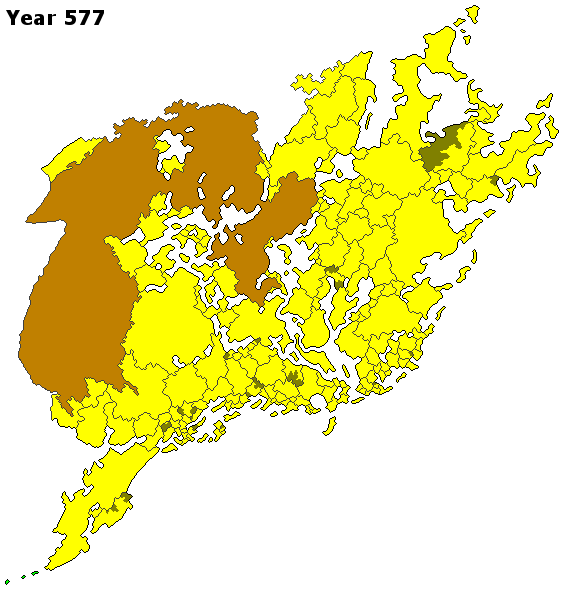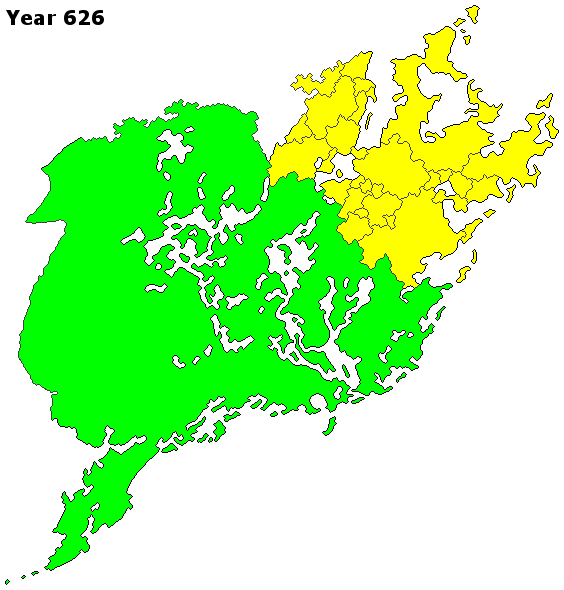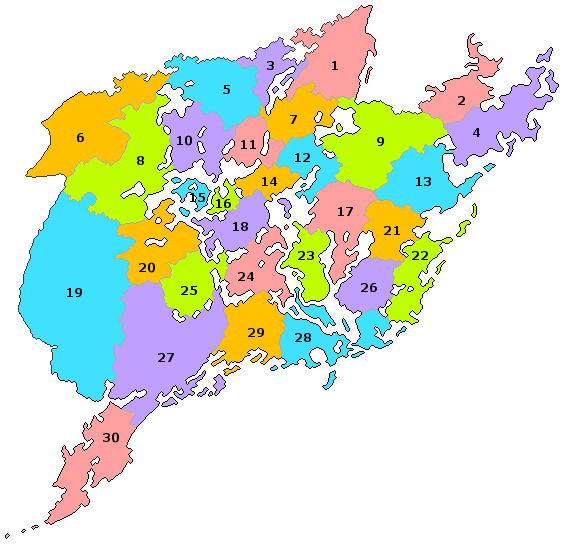Difference between revisions of "Blaist Blaland"
m (fix) |
(Update neighbors.) |
||
| Line 19: | Line 19: | ||
|highestMountain = 8,272 meters | |highestMountain = 8,272 meters | ||
|longestRiver = Unknown | |longestRiver = Unknown | ||
| − | |neighborNations = [[Darvincia]], [[The Land of the Red Rainbow]], [[ | + | |neighborNations = [[Barsein]], [[Darvincia]], [[Inevi Paz]], [[Kiligon]], [[Kulayak]], [[Kuliten]], [[The Land of the Red Rainbow]], [[Namor]], [[Nausicaa]], [[Sebkazo]] |
|regionalInfluence(low = High | |regionalInfluence(low = High | ||
|fullName = The Socialist Union of Blaist Blaland | |fullName = The Socialist Union of Blaist Blaland | ||
Latest revision as of 04:27, 4 August 2015
The Socialist Union of Blaist Blaland is a technologically advanced socialist country. Science is valued highly in every aspect of society from the culture and arts to the economy, and areas of technology such as robotics and clean energy technology are being developed quickly. As of today, the population of Blaist Blaland is approximately 592 million people.
Blaist Blaland does not have a military and the Blaist Communist Party, which has ruled Blaist Blaland since it was founded by Bla, leads very idealistic foreign politics. Blaist Blaland is a part of the Communist Universalis International and is located on the continent of Nausikkak, surrounded by peaceful and relatively like-minded nations of Darvincia, Solea and Auspikitan. The Land of the Red Rainbow also borders Blaist Blaland, and is highly militaristic and guarantees to protect Blaist Blaland from military threats.
The motto of Blaist Blaland is “To Communism Through Science and Socialism!”. Socialism is a core principle of Blaist Blaland, and the constitution guarantees the people several social rights, such as public healthcare and education, a place to sleep and food to eat, provided they work if they’re capable.
The motto reflects the fact that science is viewed as, among other things, a tool to discover technology, which will be used to continually improve society while approaching the future vision of communism.
Contents
History
In -293 the Empire of Nausikkak fell, leaving the thinly organized lands of Blaist Blaland in a state of anarchy with many small tribes and city states competing and fighting, especially in the southern regions. From these lands, many people migrated north in hope of finding more peaceful lands - one such group founded the city of Blanaxon. This city state eventually expanded across all of Blaist Blaland by establishing settlements in unclaimed lands, peaceful annexations and not least military conquests, as the early government was highly militaristic. The expansion occured in two phases, first from the establishment in 578 until 613 in a long series of wars, and the second phase being the campaigns from 627 to 642 that are known as the Late Social Justice Wars. After the Red Rainbow Revolution and the alliance between Blaist Blaland and The Land of the Red Rainbow, the militarism was eventually abandoned. Both of these periods are animated below (mouse over images for color explanations).
Homosexuality
The earliest tribal society was characterized by numerous small-scale tribal wars. Military traditions grew out of these cultures, where some raids and later armies would be composed entirely of gay lovers to increase loyalty in the army. This also made the topic of homosexuality a very visible one in a context with war, and ultimately led to some tribes picking up views of gays as barbarian warriors. Thus the late tribal societies were polarized on issues of homosexuality, with some supporting it and others oppressing it. During the unity and relative peace under the Empire of Nausikkak, attention to the topic decreased somewhat, but after the fall of the empire, the city states became very polarized again. This ultimately led to a series of wars - the Social Justice Wars - where the battles were no longer motivated by raids, but now over the issue of whether homosexuality was acceptable or should be oppressed. In most of Blaist Blaland, the gay armies largely won the battle, while in what became The Land of the Red Rainbow, the anti-gay side won. With the expansion of the pro-gay city state Blanaxon, ultimately annexing the rest - partially through the Late Social Justice Wars - and forming the modern Blaist Blaland, the anti-gay side was ultimately eliminated in the country, while fear of this made opposition grow stronger in The Land of the Red Rainbow. The Red Rainbow Revolution ultimately crushed this opposition, leaving the sphere of influence pro-homosexuality, and the armies in these countries culturally associated with gay love and liberation.
Geography
Central Blaist Blaland's landscape is dominated by rivers and lakes, surrounded by plains and forests. The northern parts are heavily forested, and the southwestern regions are mountainous, containing the tallest mountain peak on Universalis. The east coast is dominated by grasslands, large farm areas and to some extent plains.
Politics
Government
Since the founding of Blaist Blaland, the country has been ruled by a faction that eventually became known as The Blaist Communist Party. In the beginning Blaist Blaland was a strict dictatorship, but over time it has implemented reforms so that the people of the party are elected, along with a direct democracy in the economic planning process.
Administrative Divisions
Blaist Blaland is divided into 30 regions, which are further divided into more local communes.
| 1: ? | 7: Noxium | 13: ? | 19: Kulaya Mountains | 25: Ixnaix |
| 2: Western Platelands | 8: Prokax | 14: Kolkax | 20: Uxnua | 26: ? |
| 3: Snake Skytopia | 9: Kronaxo | 15: Lake Islands Region | 21: Sovkax | 27: Autolik |
| 4: Eastern Platelands | 10: Klanaxon | 16: Blanaxon | 22: ? | 28: Sea Gate Region |
| 5: ? | 11: Naxda | 17: Kaxhoz | 23: Softcoast~ | 29: ? |
| 6: Farprat | 12: Sozaxon | 18: Hjerit | 24: Prat | 30: Ipakitan |
Economy
The economy of Blaist Blaland is fully planned, and the means of production are collectively owned.
The state plans the economy based on statistics from the useage and production of property, feedback requests from people and online polls through the internet. The internet in Blaist Blaland is notable in that it's state owned and websites are funded very differently from in capitalist economies, as advertising is banned as a funding mechanism in the country. Instead, the user pays an amount of Work Units proportional to their data traffic use to the state internet provider, who then uses a portion of it to fund the websites and services used that are based in the country.
In general, Blaist Blaland has a great emphasis on public transport, healthcare, education and welfare, while luxury goods are mostly non-existant. Blaist Blaland also aims at 100% sustainability in the long term, and thus considers recycling and reduction of pollution important issues. 100% energy in Blaist Blaland comes from non-fossil sources, and the country is putting much effort into researching fusion power. Industrial production is highly standardized, for example the clothes are only produced for different purposes and in different sizes, but with the same look, and all creative material (books, music, art, news, movies, games etc.) is freely available on the public internet. Most of all, Blaist Blaland focuses on research, as it considers science the tool which will bring the technology neccesary to achieve communism. Especially artificial intelligencies and robotics are researched, in order to make work automatic and thus give the workers time to enjoy their free life.
In contrast to its early history, Blaist Blaland's military is very small today, and so is the police force; because of the high levels of social and economic equality in the country, crime levels remain extremely low. The state generally focuses on rehabiliation instead of punishment.
Income System
In Blaist Blaland, income is proportional to the duration of performed work, multiplied by an intensity factor depending on the type of work. The intensity factors are set by planners according to how intense the different types of work are, and how much they are needed by the state at the given time. Students receive income for education as well, although educations generally have lower intensity factors set. As a constitutional right, people are exempted from this income system if a doctor finds a valid health reason or the state cannot offer any type of work, but in the latter case, people are usually sent to the education system where they are qualified to work in more needed sectors. If full work exemption is granted, people gain an income corresponding to a default full-time job slightly below the lowest intensity factor in the rest of the income system, and all necessary medicine or other help for free.
Blaist Blaland has no income tax as the state derives its income from profits from state-owned companies through price regulation. However, the intensity factors described above are all of the same order of magnitude, so in practice Blaist Blaland has a very high level of income equality, even without any progressive taxation system. Blaist Blaland also does not have stock and equity markets which individuals can gain income from, as major projects are state funded, and there is no inheritance system in Blaist Blaland, contributing further to income and wealth equality. Many other types of income which are common in capitalist countries, such as speculation in house prices, are also either not available in Blaist Blaland due to the lack of markets, or are banned, as the country strongly upholds the socialist principle of "from each according to their ability, to each according to their work" - the reason behind the currency name of Work Unit.
Scientists and others who contribute major discoveries, inventions or works to society, receive special prize income along with being awarded medals and other honor symbols. Patents, copyright and other intellectual property laws do not exist in Blaist Blaland, and all research results are kept completely public, so these systems serve as the only monetary incentives.
Culture
The publicly promoted culture in Blaist Blaland (Blaist culture) is based on science, solidarity and collectivism/unity. Images from astronomy and nature are common sights in public areas, in the form of painted buildings or other types of art. Music, TV and movies do not promote crime or greed, but seek to inform people while making them find inspiration in the world they live in and show understanding of other people.
Elements from other cultures also exist and mixes with the Blaist culture, however, the state itself only promotes culture which it considers beneficial to society on a rational basis (no matter whether it comes from local traditions or from the outside world). The unity of Blaism is unrelated to misguided nationalist "unity" achieved through exclusion of other people (as the word suggests, other nations, and usually minority groups as well).
Elitism and individualism is looked down upon, which is visible in the peoples' clothing style; only a very few types of clothes are produced and carefully optimized by thousands of scientists, and the clothes are all colored black and have nothing visually unique about them.
Health and Education
Blaist Blaland devotes a large part of its state budget to healthcare and especially education. Both services are freely available. The education system of Blaist Blaland starts at the very beginning of life, as people are not raised by their parents, but in collectives similar to kindergartens with the aim of allowing people develop friendships as well as knowledge, important skills and a good health.
Tourism
Blaist Blaland is a popular tourist destination due to its many preserved areas in nature, plus its special culture and urban environments with highly developed public infrastructure.
Sports
Racing is a popular sport in Blaist Blaland, however it is strictly regulated along with cars in general to reduce pollution. Cycling is another popular sport, which is strongly supported and promoted by the government.



